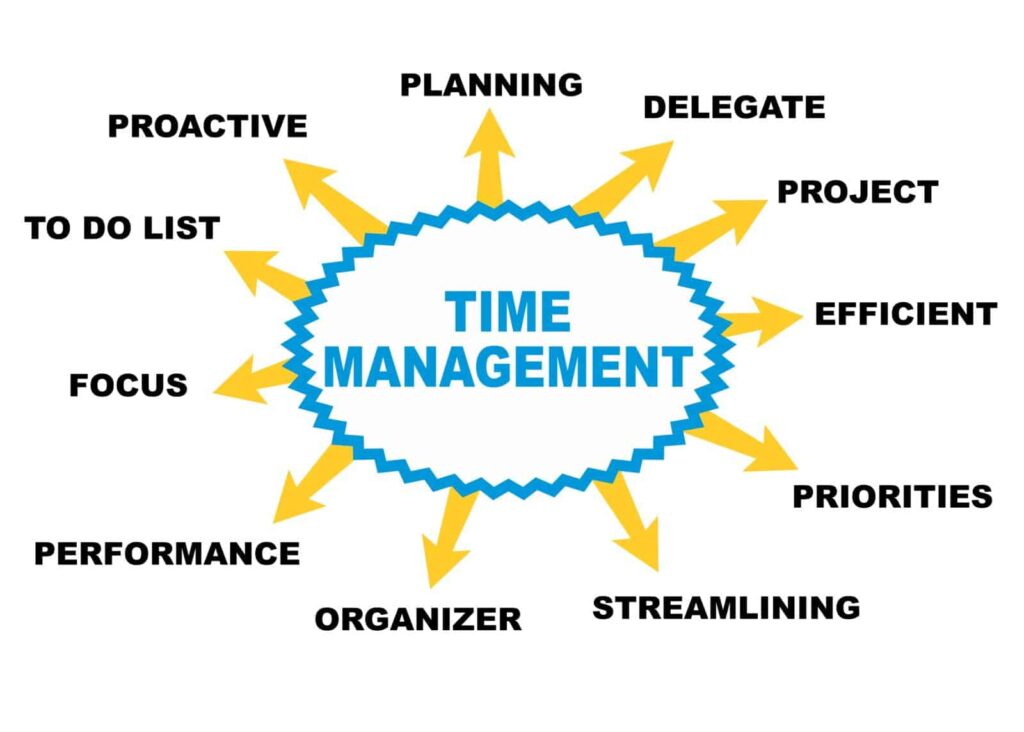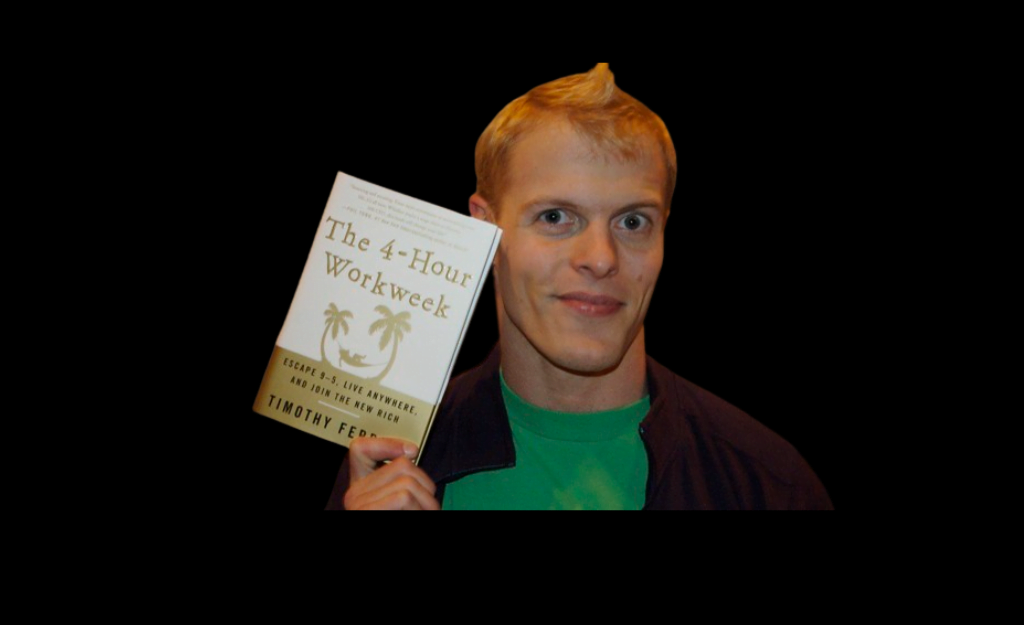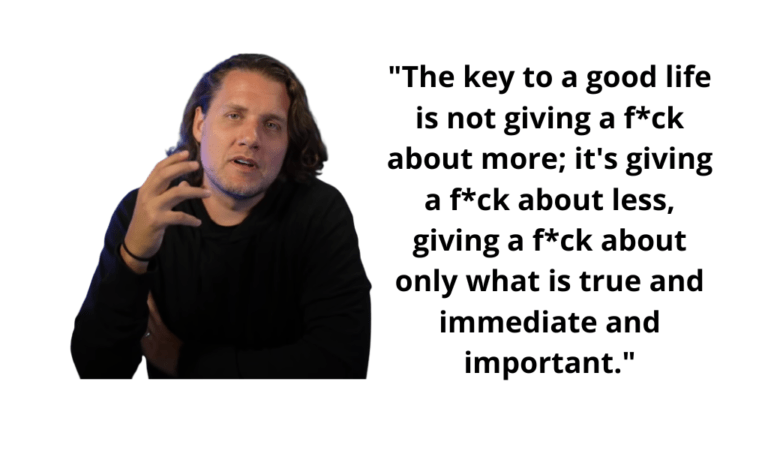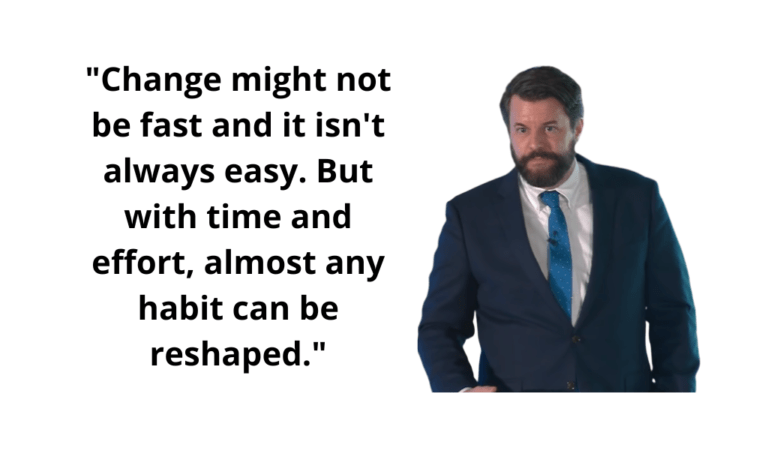Disclaimer: This post may contain affiliate links. For more information, please visit our Disclaimer Page.
Maximize Your Time and Achieve Your Dreams
Introduction
Tim Ferriss begins the book with a compelling picture: he is in the winning pair in the final of the World Tango Championships in Buenos Aires. And that’s after five months of daily rehearsals, whereas most couples have been training for 15 years.
“The 4-Hour Workweek” promises dizzying journeys, exotic hobbies (and at the level of not an amateur but a champion), precious knowledge, and the opportunity to do something essential for humanity. Tim himself won not only in tango but also in fights in the cage and kickboxing, trained dozens of record holders, was a TV presenter in China and Taiwan, professionally mastered four languages, starred in Asian television series and performed break dance, teaches the basics of entrepreneurship in Princeton and teaches mnemonics, explores the problems of diabetes and political emigration and races a motorcycle.
And although Tim stipulates that not every reader necessarily imitates him in travels and records (you can spend the freed-up time at leisure with the family, for example), one should consider the role of personality and purpose. If a person wants to do the same thing but less, he is unlikely to be able to reach the heights of ingenuity in the struggle for his freedom.

And let Tim’s advice on time management help to reduce the working day, let the emptiness drag on something, and life will not become more attractive. What is important is the inner feeling of a free and diverse personality, the desire to do something new and try a lot. Travel, if not geographical, then metaphorical – new circles of acquaintances, new professions, new tasks – a necessary goal that will teach you to look for funds and help to overcome all obstacles.
The purpose and belief in one’s limitless possibilities and the right to be realized are new and essential in this book. Without any mysticism, it makes a person come to his senses and be reborn, to look for himself, and not be a prefix for performing a particular function.
We need a guaranteed income, time, and mobility for life. Tim Ferriss shows how to get money, time, and mobility. These instructions, in principle, have long been familiar: a businessman’s basic skills, time management and outsourcing, and automated business models.
It’s all simple, affordable, and effective. The only difference is that the reader can believe and begin to apply these tips, inspired by the vision: to surpass the Argentines in tango and the Chinese in kickboxing, to master the whole world, remaining yourself.

Know Yourself and Be Free
Liberation begins from within.
An outdated idea of freedom: to become a boss or work for yourself, to provide for old age, to retire early, to buy prestigious things, and – the pinnacle of dreams – not to do what you do not want. The new rich need not the elimination of negativity but the best that the world has to offer. To become not a boss but a master, not to have, but to be, to strive not for idleness but for self-realization, to find the meaning of life and benefit the world.
The main obstacle to a new life is fear.
A professional is afraid of breaking his career, an employee is afraid of being left without a pension, and the creator of a thriving company is afraid of ruining his business. To defeat fear, calculate the “worst” and ensure the reality is even worse.
Having created a company that brought $ 70,000 a month, Tim was forced to work 15 hours a day without vacation and days off. The business model did not allow outsourcing, it was impossible to sell the company, and the journey threatened ruin. Having calculated the risks, Tim realized he feared temporary troubles and doomed himself to permanent slavery.
You can live like a millionaire without millions.
True wealth is the ability to choose where to live, when and where to go, and what to do. A rich man chained to his work spends a lot of money on a two-day vacation and can only envy his subordinate, who has made a reasonable work schedule and skis for two weeks a month in any corner of the world.
Rules of the New Rich
- Don’t wait for retirement. Money becomes cheaper, there will still not be enough of it, life will pass, and if you have not learned to rest, you will climb the wall in retirement.
- Alternate tides. “Mini-pensions” right now.
- Work less but more efficiently (not self-sacrifice, but productivity).
- Do not postpone the dream (there will be no suitable time).
Every year, about 300 French families set sail around the world. It is enough to postpone things and replace the children with a year at school with unique impressions and books. The costs are comparable to renting a house in Paris.
- Start boldly (problems are eliminated as they come, the authorities should be put in front of the fact and not ask for permission).
- Identify your strengths and develop them without worrying about weaknesses.
- Excess is harmful—even the surplus of free time and money.
- Don’t be a slave to money. Once again, remember what you need. And do not count the total income but relative (earnings per hour).
- Good stress is beneficial. Risk, physical exertion, the pursuit of a goal, constructive criticism – all this is stress, returning to the fullness of life.
Task Paradox
It is easier to cope with an unrealistic task than a real one. Many people take on a simple task, and you have no competitors. Look for unexpected recipes.
It is almost impossible to “go out” to the boss: he is jealously guarded by secretaries. At the first job, Tim called from 8.00 to 8.30 and from 18.00 to 18.30 when the boss picked up the phone. Working hours a day, he managed to do more experienced salespeople.
The question “what I want” is too general.
No one person knows exactly what they want. It would be best if you had a specific goal, not “happiness,” but a hobby. What do you want to do, and what do you achieve in this business?

Define your desires
Goals should be unrealistic, and steps should be concrete. Decide what you will do: “living like a millionaire” means living interestingly, not owning prestigious things.
Ask yourself what you would do if you were more intelligent than everyone else if failure was wholly ruled out if you had a hundred million. There is no general answer – split it into private ones: where to go, what to do every day, what to learn.
- Highlight the main thing: who you want to become, and you will understand what you need to learn, what to do, and what to achieve.
- Highlight your top 4 dreams and celebrate progress towards them. Take the first step now.
- Calculate the worst consequences if you decide to fulfill your desires right now. Consider steps to minimize damage.
- Calculate what it costs you to give up your dream (financial and emotional costs, damage to health, and quality of life).
- Begin to overcome your fear.
Fear Overcoming Training: Learn to look at people point-blank. Right now, go outside and look into the eyes of a stranger.
Fearless Freedom
When you stop being afraid, give up too much time-consuming business. If you are employed, get the consent of your superiors for independent and remote work. If the boss disagrees, just quit. And you’ll find other ways to pay bills, save for retirement, and build your career.
Don’t force yourself to do tedious work just because you’re on it. So, Tim forced himself to eat a failed cheesecake – liquid! — although most of it had to be poured out anyway. Spill out and go ahead.
Slow down the pace and rest
Try to avoid fitting three continents into one vacation. Live in the country for a long time, eat local food, and make friends with local people. And thus, you will stretch time and money: fewer flights, fewer VIP excursions, long-term rental housing is incomparably more profitable, and local food is cheaper.
Save Your Time
Time management
This should not be an effort to do more or simulate employment. The goal is to increase productivity and free up time. (An employee needs to switch to remote work first, or the requirements will be increased.)

Efficiency – the ability to act sparingly in such a way as to get as close as possible to the goal. Rationality is the fulfillment of the task most economically. Doing a trifling job may be rational, but it will only be effective sometimes.
80/20 (Pareto’s law)
20% of costs give 80% of the result. Identify the sources of 80% of the desired results (or weed out the seeds of 80% of the problems). You will be able to work much less, almost without losing income. According to the same rules, select customers, partners, sources of income, and advertising.

Of the 120 wholesale buyers, 5 brought Tim 95% of the income. 98% of the time was spent negotiating with other clients. Of the top five buyers, two ate up a lot of time and nerves with endless quibbles. Tim gave both of them an ultimatum: one client was lost, and the second accepted the new conditions. Then Tim identified the qualities of “good” customers and began to look for just such. Instead of 120 buyers, he had only eight left, his income doubled, and the working week was reduced from 80 to 15 hours.
Parkinson’s Law:

How much time to give a person, how much he will spend. The more time allocated to a task, the more difficult it seems. The deadline will help you focus and finish the job quickly and efficiently.
- Cut off unimportant tasks (Pareto’s law).
- Limit the time to cut off all excess (Parkinson’s law).
Productivity Reset: Prioritizing What Matters Most
Three times a day, check whether you are working productively or not, coming up with activities. Make lists of “what to do” and “what not to do.” Security questions:
Imagine that you can only work two hours a day after a heart attack. What do you do?
- You will be executed if you do not give up 80% of your affairs. Make up your mind quickly!
- Name the three activities you fill the time with “so as not to sit in vain.”
- Clarify: “If I do this today, will I be satisfied?” (or, “What happens if I don’t?”)—no more than two important things to do per day.
- Do not do several things at the same time. Multitasking is the same fuss.
Efficient Learning
The 80/20 principle should also be applied to information (selective ignorance). To be aware, it is enough to snatch headlines, read one or two industry magazines and address questions to specialists. The art of speed reading is useful.
When Tim thought about how to write a bestseller, he chose ten authors and called them and their agents. It took 2 hours to read each book and 4 hours to make a conversation plan. In less than 30 hours, Tim gained knowledge and connections in a new field.
- Give up all sources of information for the week.
- Take only important and specific (needed now) information.
- Do not force yourself to “finish eating tasteless” – it became boring, quit.
Time Defense
Defending against attempts at one’s own time is necessary. Sometimes it makes sense to be “difficult” or “impolite” so you don’t get touched. Our time is taken up by:
- Embezzlers (meetings and other unnecessary formalities).
- Consumers (routine tasks like reading letters, reports, and service).
- Bureaucracy (ask for permission for everything or give instructions).
The easiest way to get rid of embezzlers.
Set a time to check your email (not in the morning), put an answering machine on your inbox and phone, and refuse meetings. Meetings should be brief and to the point. They should be aimed at a specific solution. Correspondence is preferable: it teaches brevity. And do not allow anyone to “look” into your office.
Efficient Task-Batching
Reducing the cost of routine tasks due to “serial production” is possible. Checking a hundred emails once a week will take much less time than reading them hourly. Group your tasks into series and packages.
Autonomy Empowers
Get maximum autonomy from your boss — or, if you’re the boss, give autonomy to employees. Let the issues at $ 100 decide for themselves. Then you won’t spend an hour to save $100.
Outsourcing: The Benefits of a Flat World
Mastering Outsourcing
Outsourcing is the best way to save time.
Routine work, collection of materials, as well as payment of taxes and even personal purchases, can be entrusted to a remote referent.
Esquire’s senior editor, Age Jacobs, hired two assistants in India, one for work and the other for his personal affairs. He not only freed up time but also freed himself from stress. Literally: Zita promised to worry instead of him.

Outsourcing Benefits
Employees can free themselves from a significant share of the work by transferring it to others. This is beneficial: colleagues from developing countries take four times less (tenfold if they perform the routine part of the work), and relative income increases.
Boss Prep: Outsourcing Mastery
Outsourcing is preparation for becoming a boss for an employee and a startup. Learning to delegate:
- First, we eliminate the excess. Sometimes the work doesn’t need to be done.
- What cannot be eliminated, we try to simplify or automate (for example, answering machines, response templates, and mailing will help to cope with mail).
- You need to delegate specific and time-consuming tasks. Clearly stipulate the requirements and how much time is allocated for execution (hourly payment).
Advantages of foreign outsourcing
Cheap labor, time zone difference (boss sleeps, work continues), and employees’ diligence. But it is necessary to consider the problems, including the language barrier. The main criterion is the total cost and quality of the task.
Teamwork Advantage
It is better to have not one assistant but a group or assistant with a ready-made team. Such a team is more convenient than full-time employees: there is always someone to give an assignment to.
Security Measures
Any employee can be incompetent or even a scammer, and saving information on your computer is challenging. Recommended:
- Sign secret trade agreements.
- Do not allow hiring new freelancers without your approval.
- Create separate logins and passwords for employees.
- Pay only by credit card.
Money without problems: how to come up with a new product and establish your business
Task
Business without time. It can’t be a production or service. Only goods sold via the Internet. Basic conditions:
- Thoughtful ordeal.
- Competent positioning.
- Smart distribution.
Exclusive Profits
Wholesale sales should be limited to a narrow circle of customers who undertake to keep the price high. The more participants in the chain, the greater the share of profits you keep for yourself (otherwise, the profitability will fall in all chain links).
Niche Mastery & Demand Discovery
First of all, find or create your niche in the market. Refrain from guessing the demand in an unfamiliar environment: you are part of the target audience.

Tim intended his dietary supplement (“neural catalyst”) for students, then clarified: it to student-athletes, and finally narrowed the audience to the utmost: student wrestlers.
Consumer Insights
Take a closer look at what you buy most often. What groups of people share your interest? Are there any notable magazines for them? Look in these magazines for advertisements of companies that trade over the Internet or by phone.
Elite Simplicity
Formulate the “product idea.” Its main advantage should be expressed in one phrase. Providing the goods with the exact simple instructions is advisable to avoid answering customers’ endless questions later. Basic requirements for the goods:
• Cost – $ 50-200 (should not be reduced, this makes life easier for competitors, deprives the product of “eliteness,” and forces to look for more customers). Those who do not shake over money buy expensively – there will be fewer complaints and demands for after-sales service. But too expensive goods cause discomfort. The difference between the cost and sale prices is 8-10 times.
• Production time — no more than a month. Check with subcontractors the terms and prices for different batches. On a large circulation, you can significantly benefit.
Ad Pre-Testing: Ensuring Demand and Maximizing ROI with Google AdWords
The Demand must be pre-tested. It is not important positive reviews, but the focus group’s immediate willingness to pay money for the goods. A good way is Google Adwords (for only $ 500, you will check the attractiveness of your advertising). You can create multiple ad modules that differ in only one parameter, provide them with automatic rotation in Google and see which option is more successful.
Ed decided to sell dietary supplements for athletes. He began with a brochure about dietary supplements and placed an advertisement in a men’s magazine. If the text had not generated interest, the loss would have been reduced to the price of the ad. A large number of orders for the brochure confirmed the Demand. Ed sold dietary supplements expensively and only in one chain of stores (so as to keep the market manageable).
The main options are resale, licensing, and creating your product.
Wholesale Retail Strategy
Buying in bulk and selling at retail is the simplest, fastest, short-lived solution. It is suitable for related products that existing customers will buy. Get a price list from wholesalers, register an LLC, and create a website.
Licensing Wealth
In the licensing agreement, both parties can be the new rich: for the inventor or brand owner, it is a kind of outsourcing, and for the licensee – the opportunity to start his own business.
Effortless Creation
It is easy to create your product. The development can be entrusted to engineers or designers, and adapting an existing product for a specific market is even easier. The necessary amendments will be made on your instructions, and you will transfer the order to the manufacturer.
- Compare products in the same category (Google keyword search).
- Offer a wide range of fast delivery (but not the same price).
- Build trust in yourself as a specialist.
- You can test your interest by listing an item on eBay.
Sherwood wanted to sell French vests. He created an advertising site on which the buyer filled out an order with an address and a phone number, and when he clicked the “buy” button, he received the answer: “The goods are not in stock.” Sherwood probably lost a few customers, but he realized whether he could sell his product.
Information Goldmine: Unlocking the Secret to High-Profit, Low-Cost Products

Calculate the initial costs, unit costs, and minimum order. We don’t want to fall into slavery, and we don’t take on construction work or expensive electronic toys. You need a product that is created quickly, with minimal costs, and allows markups of 20-50 times. The ideal outcome is information.
Information Economy
The most popular industrial products, such as Nike sneakers, “live” no longer than three months – and immediately, there are 20 times cheaper Chinese copies. It is impossible to copy the information without violating copyright law.
Three top American TV shows were used in the staff by only 25 operators, and specialists performed all other work from the outside. The total amount of information is estimated at $ 65 million for 2002, and at the other end of the spectrum is a DVD course on warehouse security systems. This niche product cost $ 2, sold for $ 95, and the creator of the film earned several hundred thousand.
Expert Illusion: Quick Mastery and Credibility Hacks for Budding Entrepreneurs
No need to be a specialist. It is enough to understand the issue better than the average buyer, and acquiring such knowledge takes no more than a month. You can combine content from several books, adapt the material to the public domain, or invite a specialist (for example, for royalties).
The task is not to be but to seem to be a specialist (not to create a product but to sell).
To do this:
- Join a professional organization.
- Read three bestsellers on the topic.
- Hold free seminars at the university and in the branches of two large companies. In companies, refer to a university seminar and membership in a professional organization. Record a video of your talk.
- Offer industry magazine articles or interviews with an expert.
- Register on ProfNet: where journalists are looking for experts.
A Business Model that Works on its own
Effortless Enterprise
The business model is built “from the goal”: a stable and not requiring unnecessary attention company. In the scheme of the company of its owner, as it were, there is no: Ferris compares himself to a policeman who does not intervene until everything is in order.
- In the first stage, the owner himself accepts orders, answers customer questions, monitors advertising, and participates in packaging and loading, selecting cheap options.
- Connect local order processing services starting from 10 units per week. A small company may ask for deferred payments and discounts.
- Compose the text “from the support service” and duplicate it in customer answers.
- Over 20 orders per week – connect other outsourcing companies, help centers, payment processing services, etc.
Streamlined Simplicity
Many companies lure customers with an abundance of options. There needs to be a better approach. First, it complicates the life of the owner. And secondly, it complicates the life of the buyer.
- One main offer for goods and delivery and one special.
- Do not communicate on the phone; only through the network.
- Do not offer courier and international delivery.
Filter out inconvenient customers, and treat good ones as partners or club members: respectfully but without subservience.
Strategic Pricing: Wholesale Only + Losing-Win Guarantees
Strict pricing policy: wholesale discounts only for large batches and related products – at least for a symbolic price, but not for free, instead of free trials – losing-win-win guarantees.

Losing-win guarantees are a bet: if the buyer is dissatisfied, he will get the money back and win.
- In case of delay – delivery is free of charge.
- Do you prefer a competitor? Return our product – we will pay for another purchase.
- We will not give the promised effect – we will return 110% of the price.
So Tim sold dietary supplements. Sales jumped threefold, and returns fell sharply.
Large sellers and potential partners treat a small company without trust. Here are ways to “puff up your cheeks”:
- Call yourself not a founder or CEO but some “vice.”
- Specify several addresses and phone numbers, but not your home or A/F. Box.
- Use the interactive answering machine.
Public Relaxation
Learn to be relaxed in public – it is necessary not only to think but also to act outside the box. Try, for example, to lie down in a crowded place for 10 seconds.
Take Action
Remember the parable of the conqueror who wanted to conquer half the world and then rest. About a businessman who lacks several million for a free life. About a worker who waits for a pension to see the world. Your business model works – pack your bags.
Conclusion
And now a new life begins. It can start with disappointment. Because everything around you is the same, and you have not changed, how to fill the void is unclear. That is why, even if your main dream is to lock yourself at home and write a novel or collect stamps, it is reasonable to start its implementation with a trip. Full switching. And, taking things on the road (at a minimum), you will get rid of ballast.
Prepare in advance, putting your business into automatic mode, severing onerous ties, and handing over the steering wheel to a trusted person. Don’t be afraid to take your children with you. But keep the discipline and find them a school or language course.
Settle in a foreign country for a long time: you will save on renting housing and VIP excursions. Relax, now you have enough time. Cover all aspects of life in the country – learn the language, dances, and martial arts. Be interested in benefits and the opportunity to live budgetarily. Earning and surviving in an alien world is an adventure.
You will have to go through doubts: are you a wimp, and are you lazy if you left the game from a young age? Shouldn’t we envy friends who successfully make a career and money? It will take a lot of work to dispose of free time just because you have yet to have that experience. The meaning of life will be tormented, and many days will be “lost.”
And then tell yourself: the meaning of life is in joy. Find something that will satisfy you: travel, volunteering, creativity. There are many options, but after interviewing dozens of newly rich people, the author derived a general formula: teaching and service.
Traveling is an ideal way to learn languages, folk art, and local sports. Combining mental activity with physical activity gives the greatest satisfaction and promotes new acquaintances. The world appears in bright colors.
Service is the desire to make not only your life better. Everyone chooses the mission for themselves, and there is no need to argue about whether to save whales or children. Find an exciting and important thing for you personally, perform it conscientiously, and do not look back at anyone. When you slow down, return to the starting point, almost to childhood – there you can do what you want and become anyone – this important matter will come to you by itself.
Avoid common mistakes. Do not return, afraid of emptiness, to work for work’s sake. Refrain from inventing small activities to fill the day, and refrain from invading the work of your perfectly established company. Do not mix work and life. Separate them in space and time. Fully comply with the 80/20 principle and carry out regular cleanings. Don’t strive for perfection. Don’t kill years to master 100% of what you’ve mastered 95% in a few months.
Live among people. Love people, give joy, and look for positive impressions.
In short, be free and happy. Don’t delay.
F.A.Q. about “The 4-Hour Workweek” by Timothy Ferriss
What is “The 4-Hour Workweek” by Timothy Ferriss?
Timothy Ferriss wrote “The 4-Hour Workweek,” a self-help bestseller. Entrepreneurs and those seeking a better work-life balance have read it since its 2007 publication. The book offers techniques and resources to help readers escape the 9-to-5 workday and live more flexibly.
What are some key concepts discussed in “The 4-Hour Workweek”?
“The 4-Hour Workweek” discusses business, productivity, and lifestyle.
Outsourcing: Ferriss recommends outsourcing trivial tasks to focus on more important tasks. He recommends outsourcing and recruiting virtual assistants.
Time management: Ferriss thinks people waste time and the 40-hour workweek is inefficient. He advises choosing the most important tasks and delegating or eliminating the rest to work faster.
Lifestyle design: The book advises following one’s interests and ideas rather than society. Ferriss advises readers to pursue their goals and live meaningfully.
Who is “The 4-Hour Workweek” best suited for?
“The 4-Hour Workweek” is excellent for people who want greater flexibility in their job and personal life. It’s useful for entrepreneurs and business owners who want to simplify and boost productivity. The book might also benefit those overworked or seeking a more meaningful existence.
What are some criticisms of “The 4-Hour Workweek”?
Common book complaints include:
It’s unrealistic: Critics say the book’s suggestion is impractical and that most people can’t work a 4-hour week. Critics also say the book raises high expectations and discourages those who don’t succeed like the author.
Some critics say the book fosters a “workaholic” mentality that prioritizes production over all else. Some say it can cause burnout and work-life imbalance.
Lastly, some reviewers say the book is excessively focused on money and neglects other areas of life.
Quotes from “The 4-Hour Workweek.”
“Focus on being productive instead of busy.”
“The question you should be asking isn’t, ‘What do I want?’ or ‘What are my goals?’ but ‘What would excite me?'”
“The opposite of love is indifference, and the opposite of happiness is boredom.”
“The best way to get started on the path to sharing your work is to think about what you want to learn, and make a commitment to learning it in front of others.”
“It is not enough to be busy. So are the ants. The question is: What are we busy about?”
Disclaimer: This blog post is a summary or resume of the book and is not intended to dispense the reading of the original book. This post aims to provide a general overview of the book’s main ideas and themes and encourage readers to read the complete book to gain a deeper understanding of the material. The information presented in this post is intended to be something other than a substitute for the original book and should be used as a supplement to, not a replacement for, the entire book. We strongly encourage readers to read the complete book to benefit from its ideas and teachings fully.







